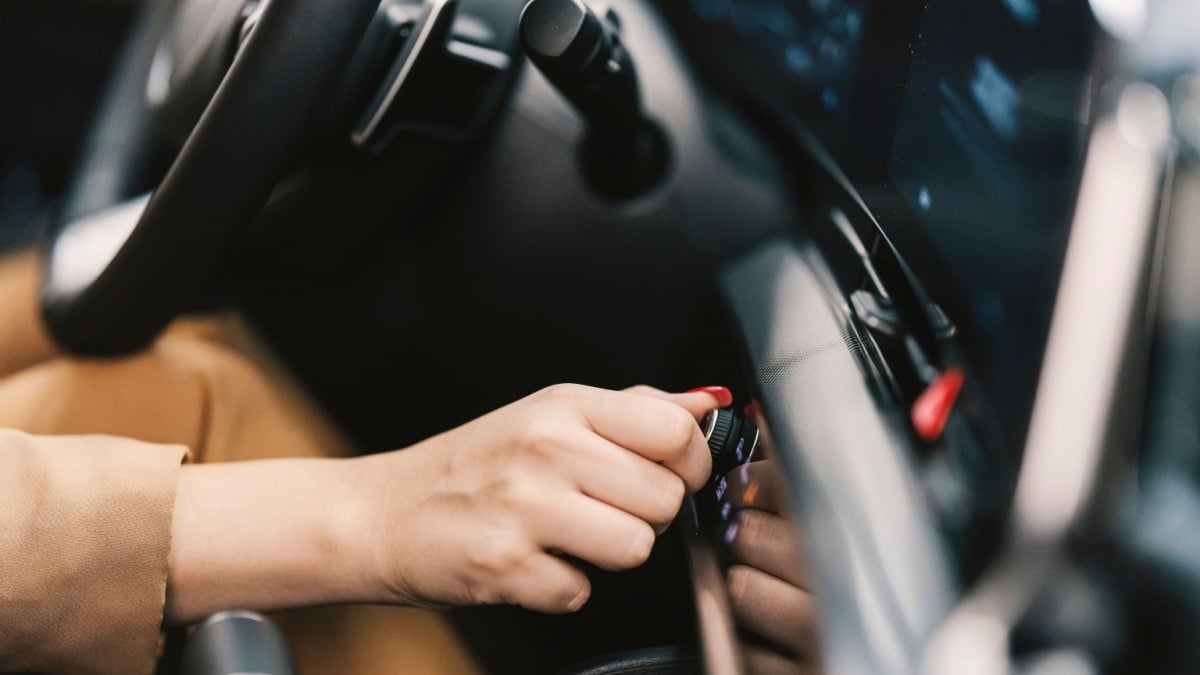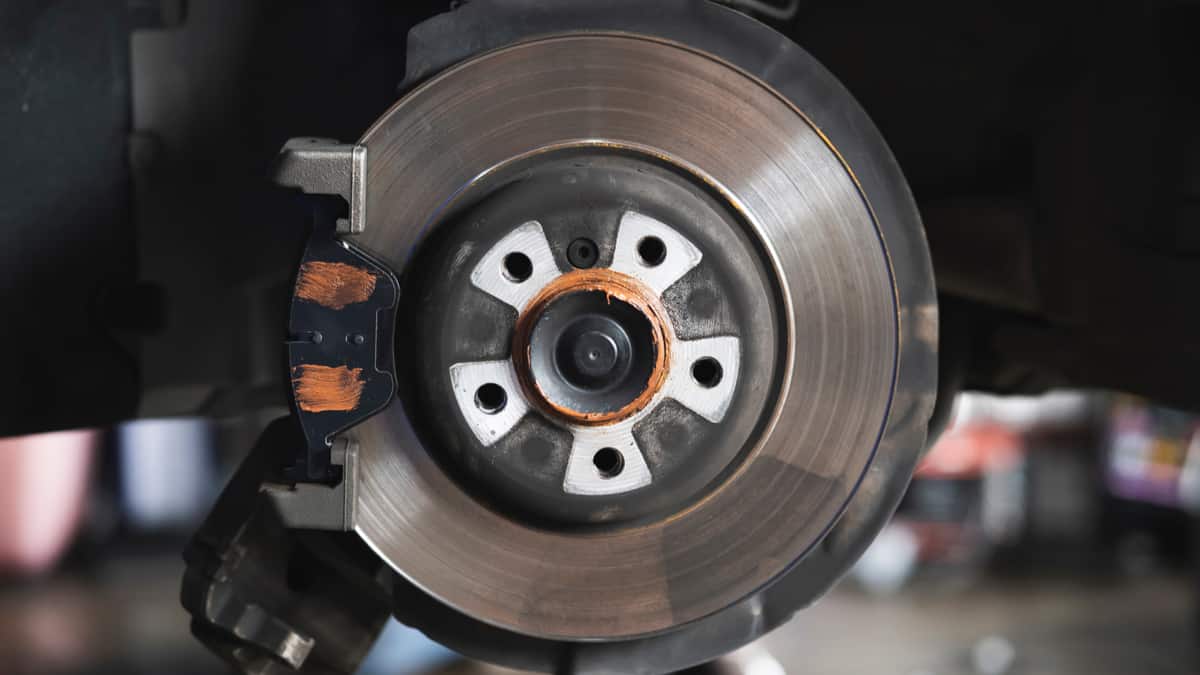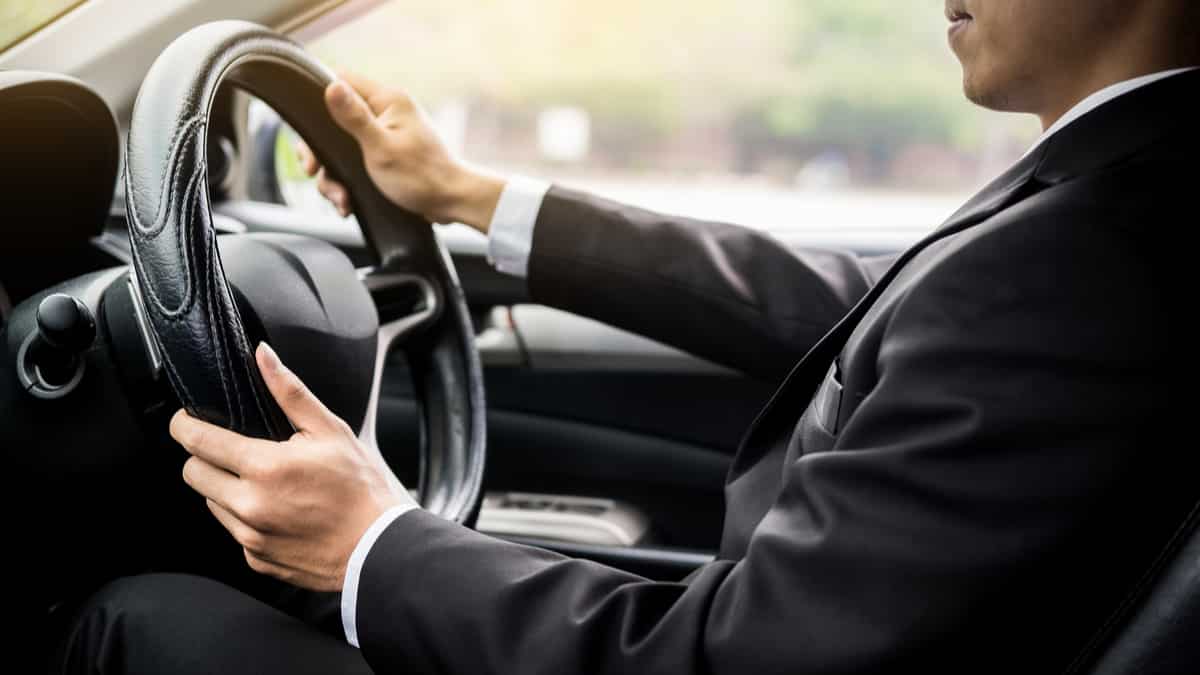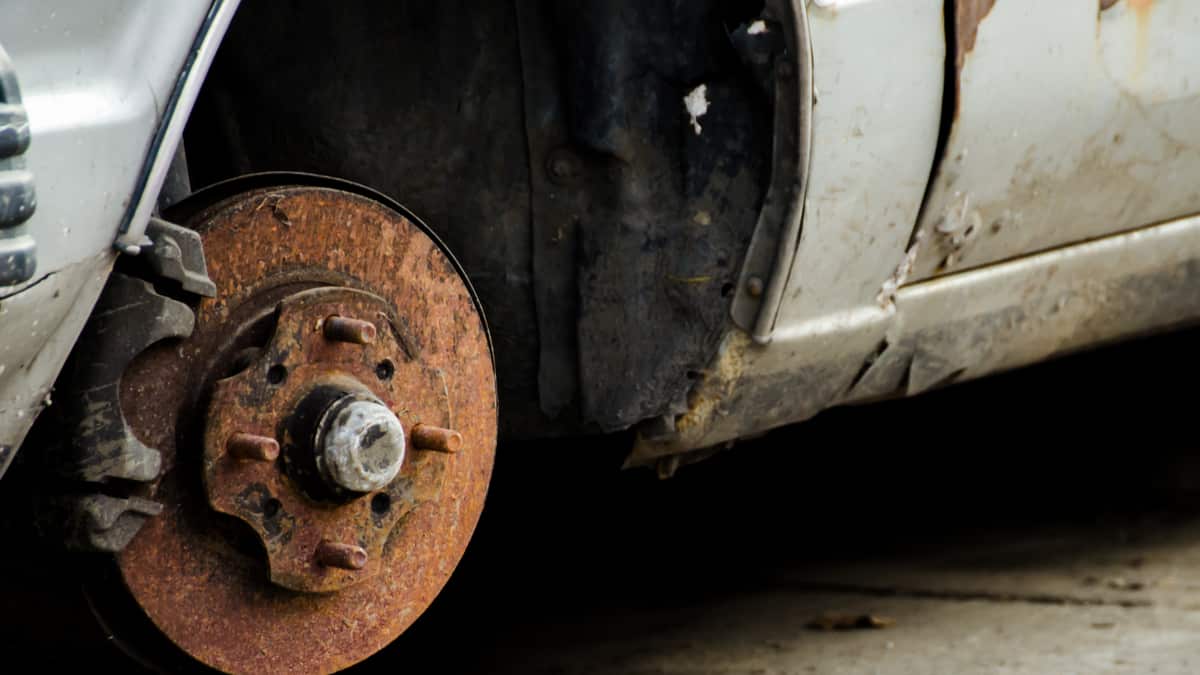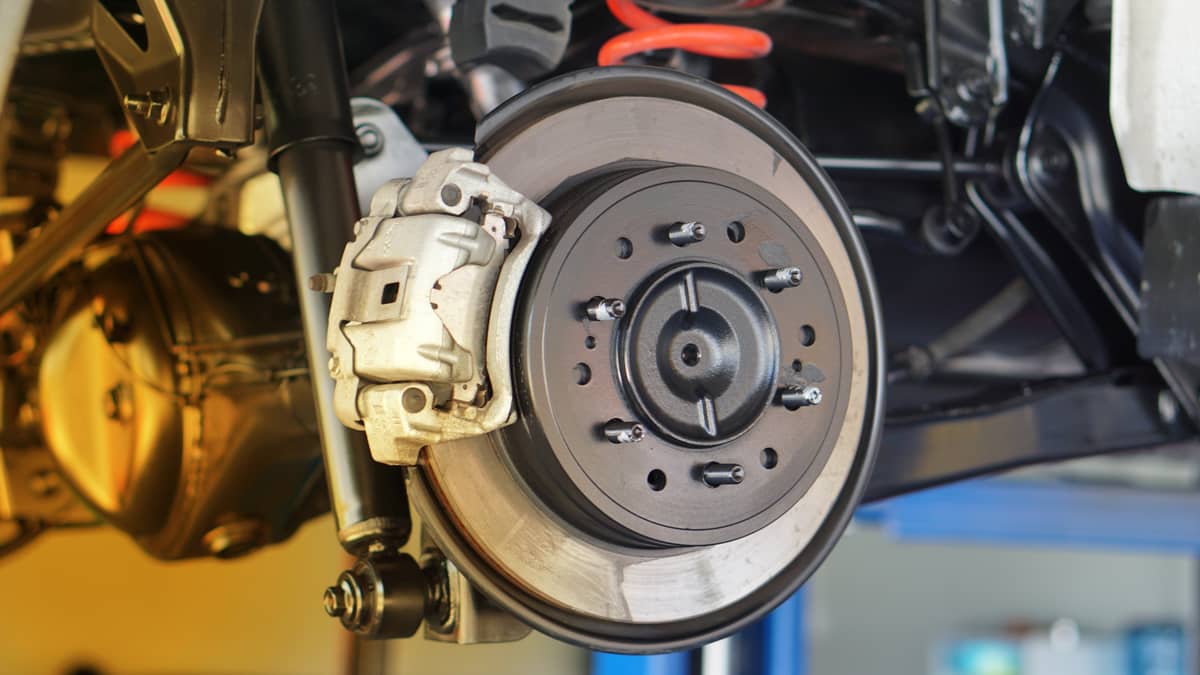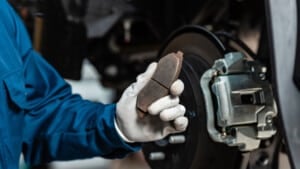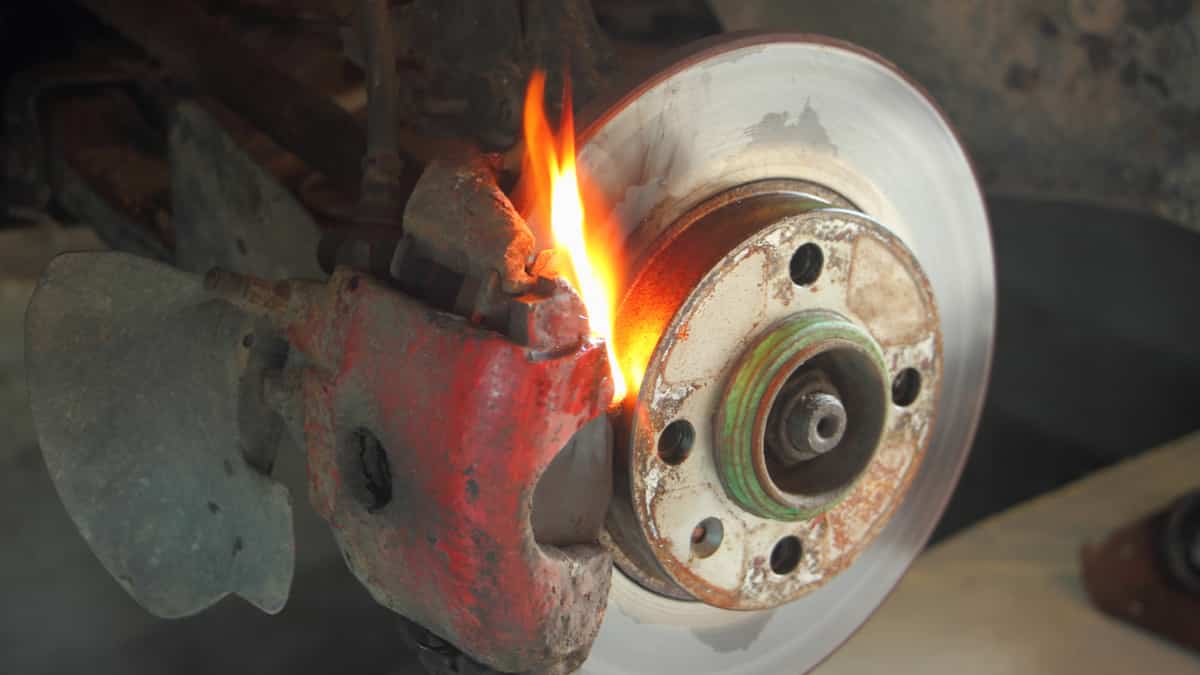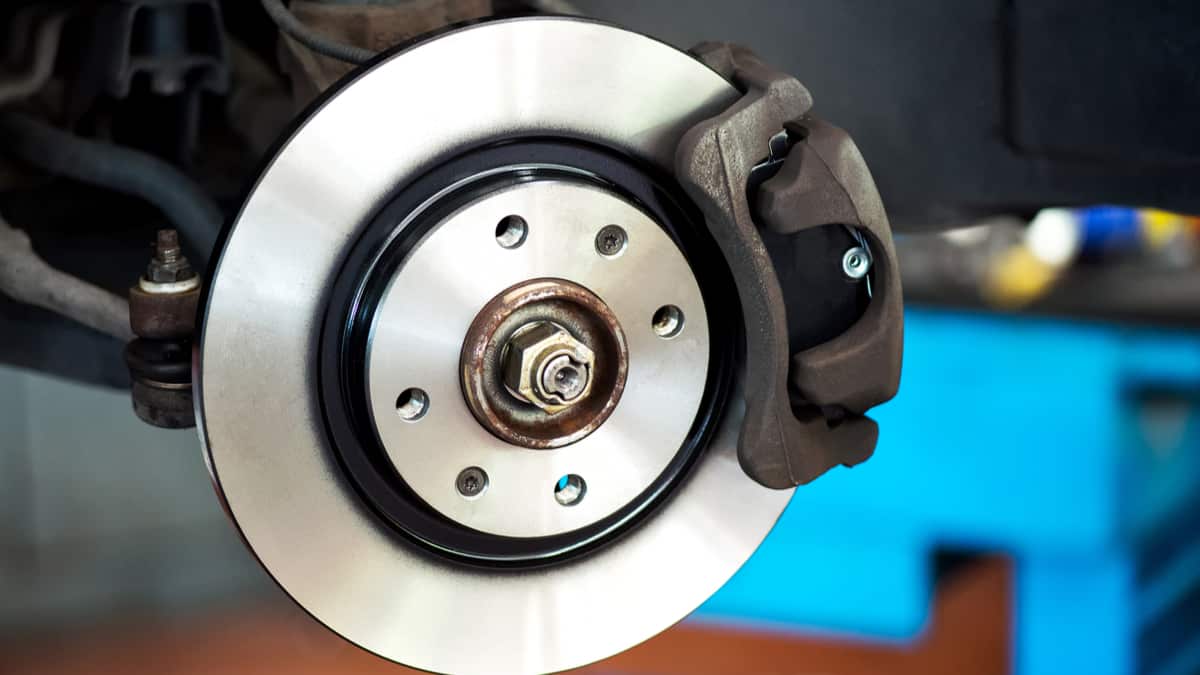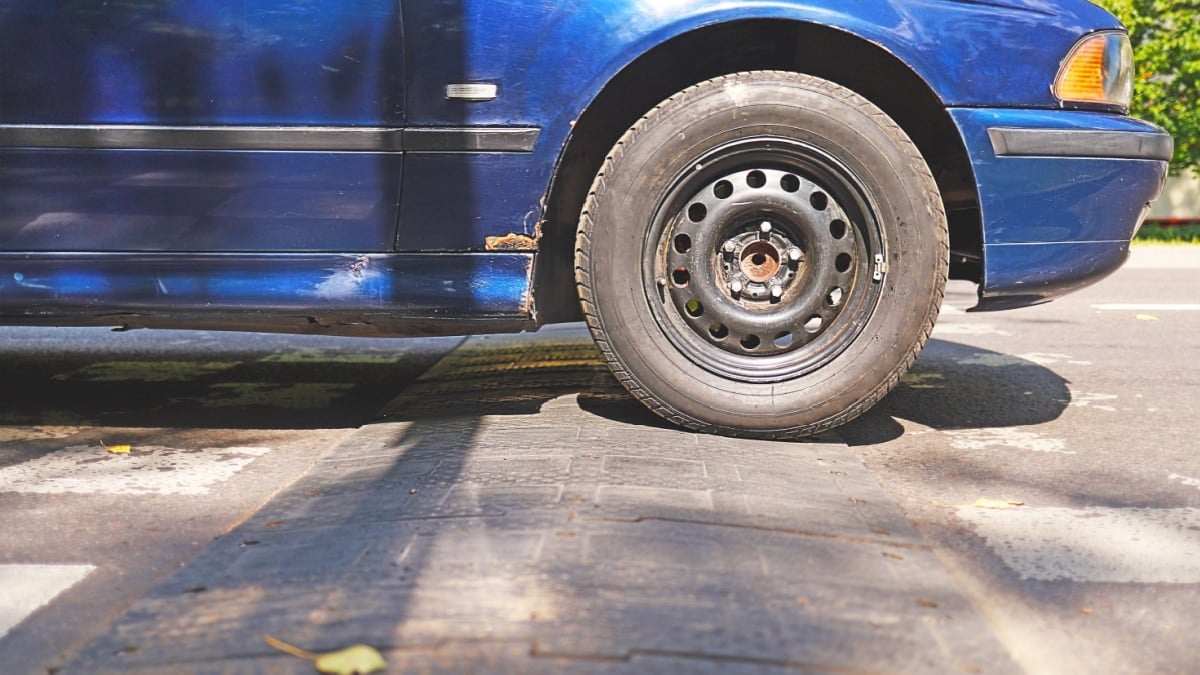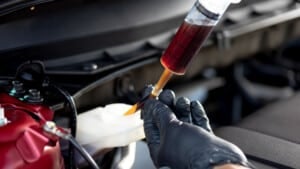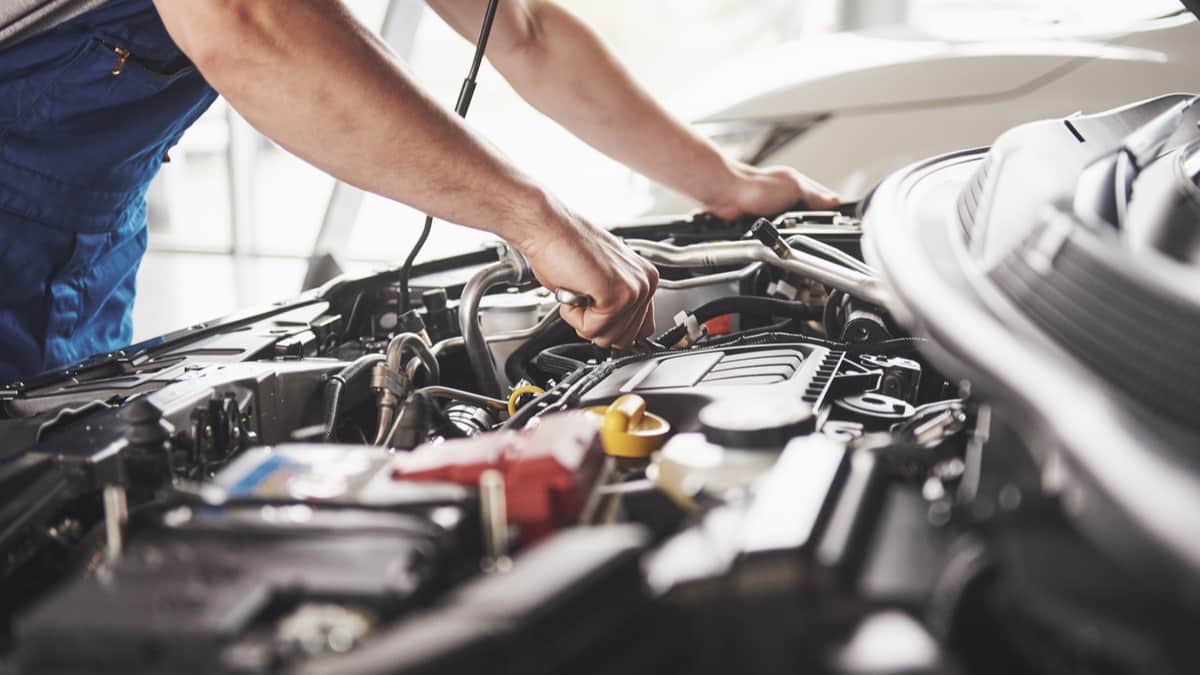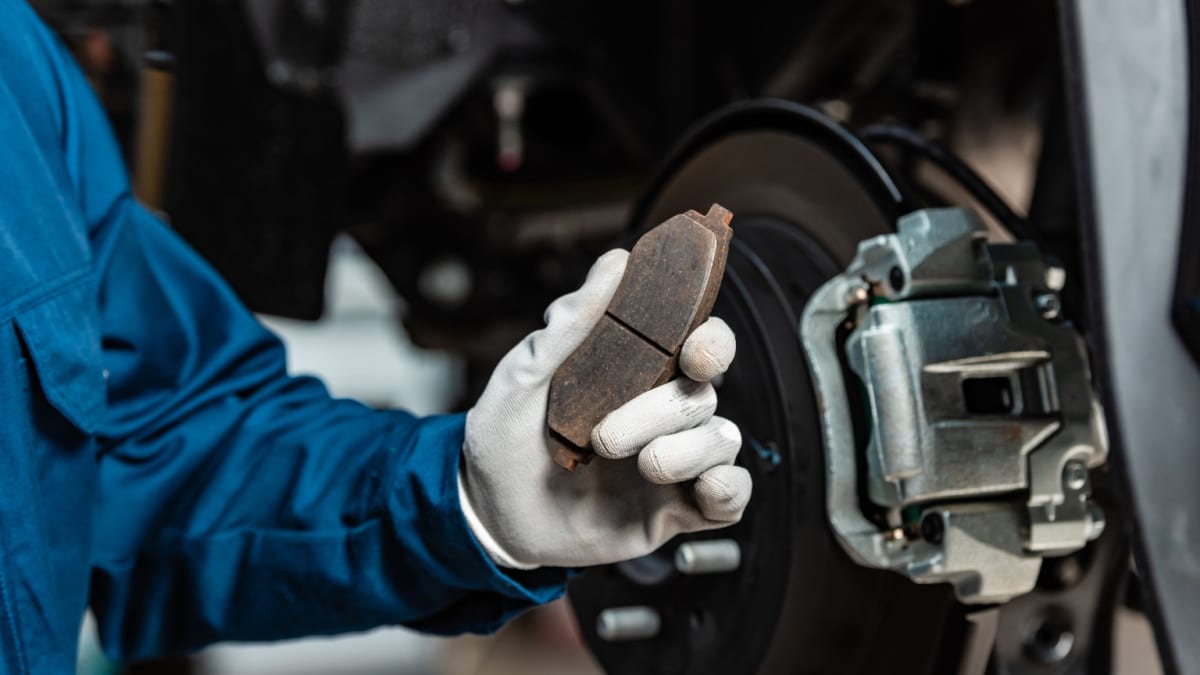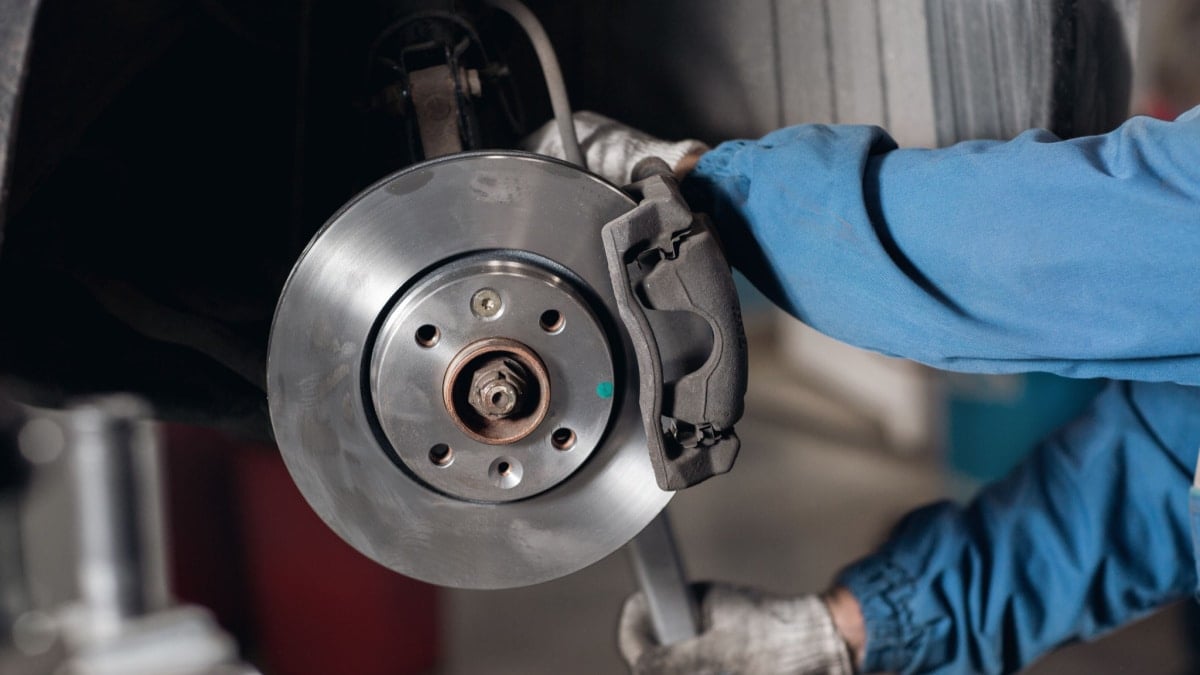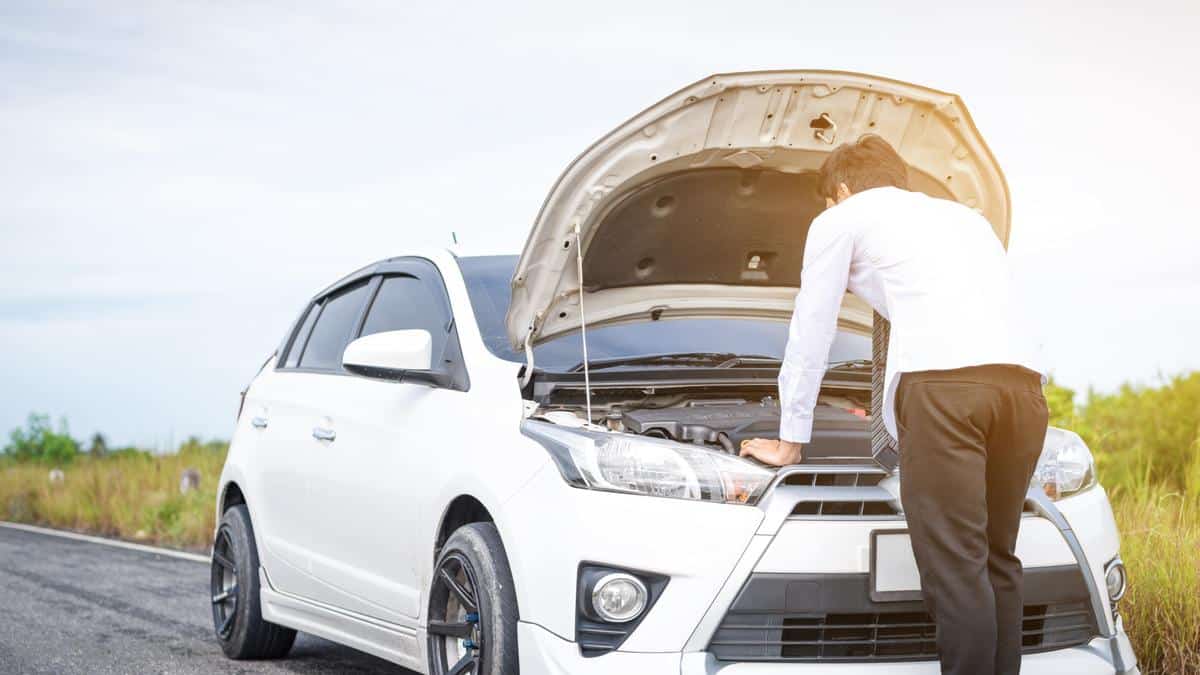It’s not a surprise to most people if their brakes squeak when pushing on the pedal. Normally, it simply means that it’s time to change the brake pads. So, what does it mean when there’s a squeaking noise while driving, but the brakes are not applied? This could be something similar or completely unrelated.
In this guide, we cover all of the possible causes. We also look at how to fix the squeaking sound for a more peaceful ride. Additionally, you know that all of your top questions will be answered before you have finished reading.
Causes of Squeaking Noise While Driving But Brakes Not Applied
The squeaking noise is probably coming from the brakes, even though they aren’t applied. It could be a stone that has gotten stuck or trouble with a caliper. It’s also possible that you have rusty rotors, low-quality brakes or the dust shield is loose. Otherwise, consider an engine or transmission noise.
To help you figure out what’s going on, we look at each of these problems individually.
1. Stone Stuck Between Brake Shield and Rotor
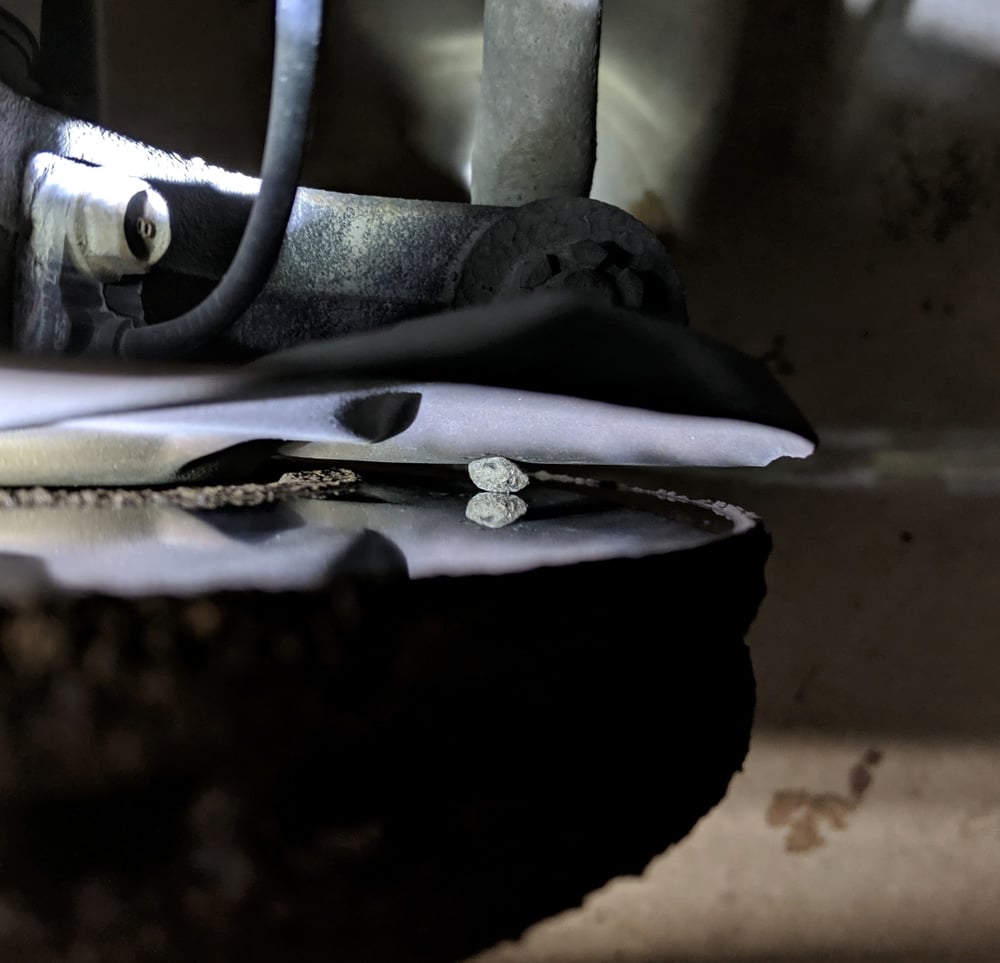
As you drive, it’s normal for debris to get kicked up on the road. Small pebbles and stones are one of the most common contaminants getting into the brake system. When a stone or acorn gets stuck in the brakes, it’s normal to hear a squeaking sound.
If left unchecked, the debris can also cause damage to the brakes. For this reason, you want to work on fixing it right away.
To avoid getting items stuck in the brakes or tires, avoid driving down dirt roads. If you have the option to travel along a paved road or something rougher, go with the smoother option. If you live down a dirt lane, you can expect this problem to occur more frequently.
2. Stuck Brake Caliper
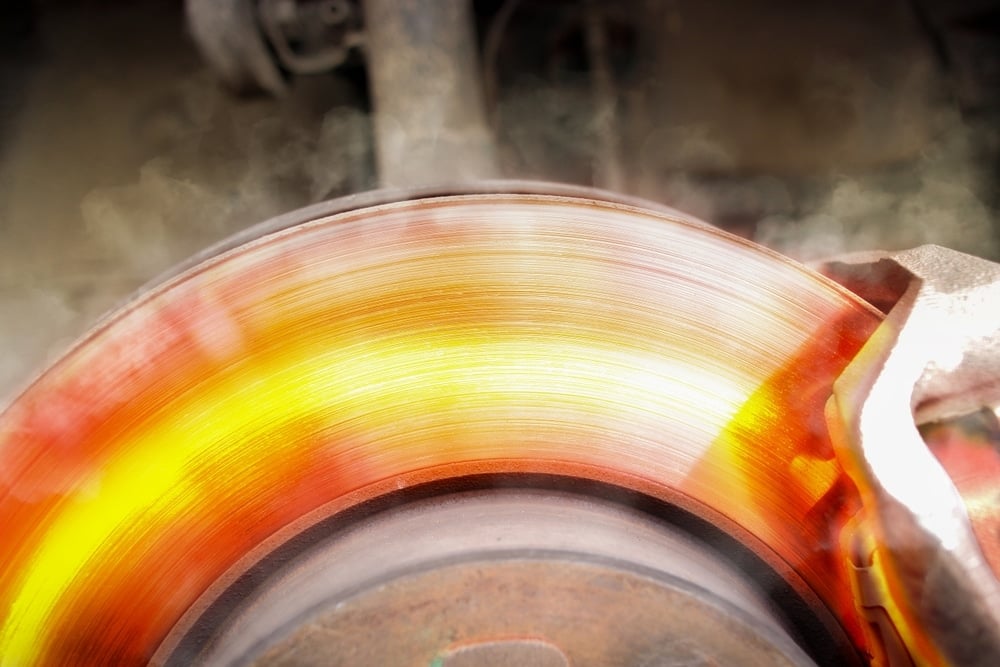
The brake caliper is a main component of the system. Calipers house the brake pads and are a part of the assembly. If the caliper becomes stuck, the car will have its brakes applied all of the time, which can lead to squeaking sounds.
The vehicle may also pull to one side, where the caliper is stuck. If you continue driving like this, the consistent rubbing can cause the rotors to heat up. In extreme cases, a fire can start. Caliper seizing is caused by rust or a lack of use. If you leave your car sitting in storage, this problem becomes more prevalent.
RELATED: Brake Caliper Sticking? (Causes & How to Prevent it)
3. Rusty Brake Rotors
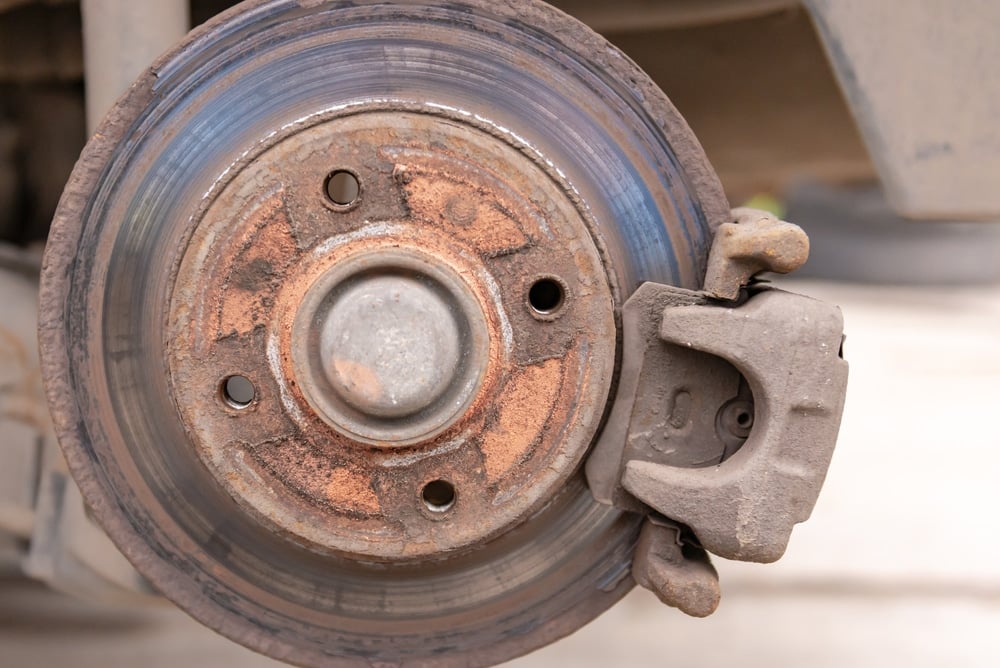
The brake rotors are the discs that the pads clamp to when it’s time to stop the wheels from turning. Sometimes, surface rust appears on the rotor, which isn’t a big deal. This type of rust can be cleaned off. However, when the rust sits on the rotor, pitting and damage can occur, leading to a squeaking sound.
To prevent rust from occurring, you want to drive your vehicle often. You also want high-quality rotors, which we will talk about more in a minute. When you aren’t driving your car, park in a garage away from moisture. Also, once you start driving, it’s best to step on the brakes a few times just to try and dry them out.
4. Low Quality Brake Pad or Rotor
Brake pads come in a variety of types. You can find value-based cheap brakes and expensive, top-of-the-line options. In most cheap vs. expensive brake pad studies, the mid-range brakes tend to be the best. Choosing a cheap type could cause squeaking, while the expensive options may not be worth the added cost.
Additionally, you want to pick high-quality rotors to avoid noise. Opt for some that are zinc-plated or coated for more protection from corrosion and rust. We recommend reading through customer reviews before choosing a set of brake pads or rotors. Other customers will let you know if they are noisy.
5. Loose Brake Dust Shield
The brake dust shield does exactly what it sounds like. It’s meant to protect the brakes from the dust that naturally occurs. By keeping the brakes covered, dust can’t harm the system as easily.
Because of all of the vibration, the shield can come loose. As it rattles around, it hits the rotor, which can lead to a squeaking noise.
6. Engine Noise
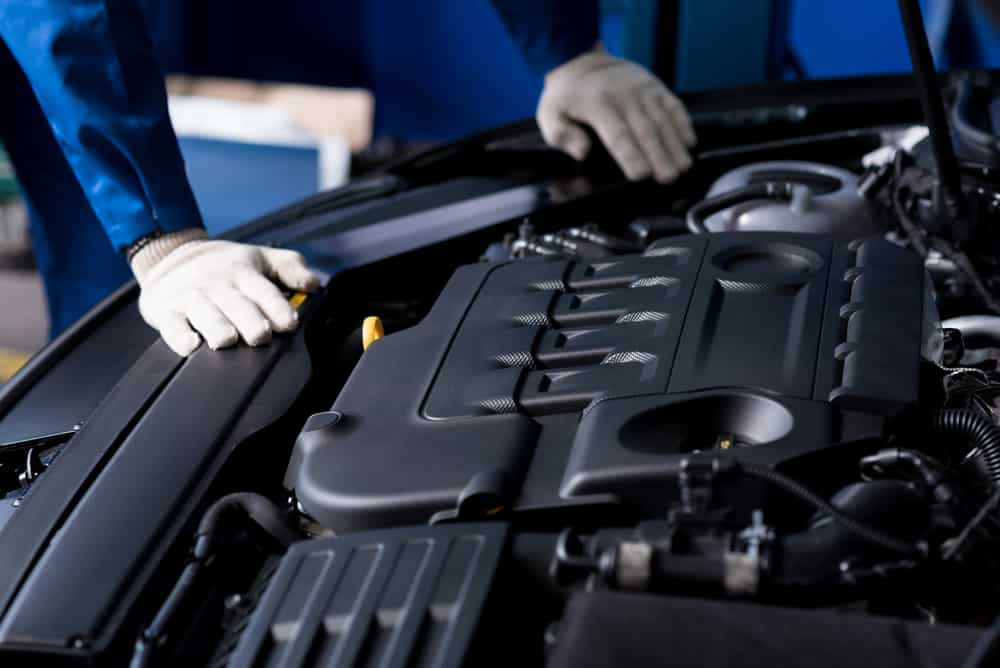
It’s completely possible that the noise isn’t coming from the brake system at all. Maybe, you actually hear the noise from the engine area.
When a belt starts to slip, or an internal failure occurs, squeaking is sure to follow. If the noise is coming from the engine, you don’t want to continue driving until you figure out what’s wrong.
RELATED: 7 Engine Noises You Should Not Ignore (& What They Mean)
7. Transmission Noise
The transmission won’t usually make a squeaking sound. However, some noises it makes can be mistaken for a squeak.
For example, if the transmission fluid gets low, it can start to whine. This is often confused with squeaking. Either way, you wouldn’t want to neglect any transmission noises either.
How To Fix Squeaking Noise While Driving When Brakes Not Applied
Once you hear the squeaking noise, it’s time to take action. You can resolve a lot of future problems by fixing the issue right away. Start by referencing the factory service manual for your vehicle before getting started.
Once that’s done, move on to these steps.
1. Try Driving Forward and Backward a Couple of Times
The easiest way to fix the problem is to move the car forward and back a couple of times. If something has gotten stuck in the brakes or the wheels, this might be enough to pry it loose.
If the debris remains stuck after driving around, you can attempt to remove it yourself. Just be careful that you don’t put too much force on any of the valuable components because you don’t want to cause more damage.
2. Inspect the Brakes
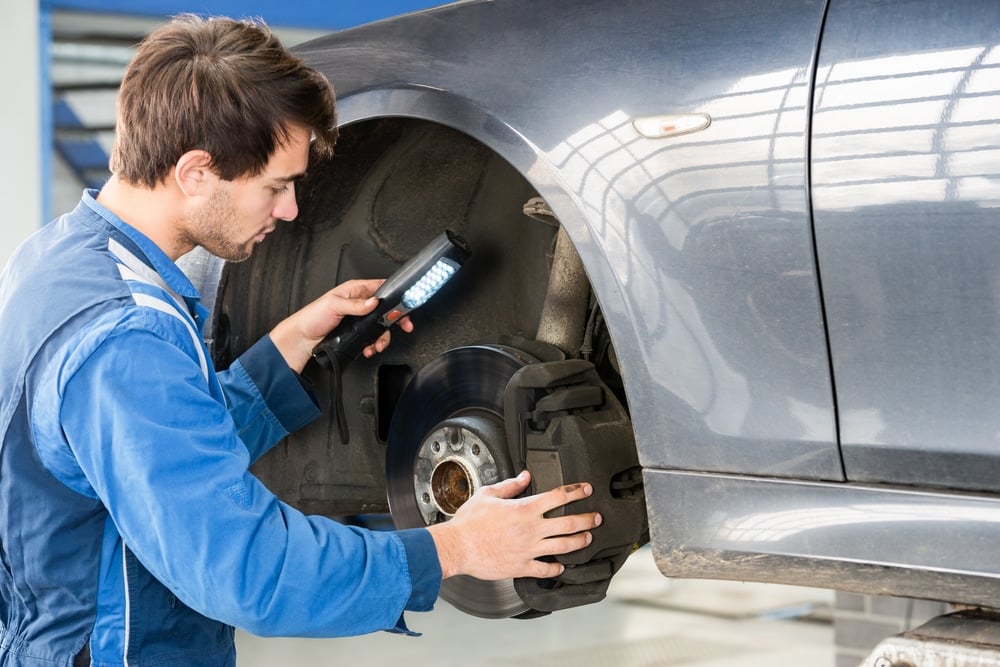
If debris isn’t the culprit, it’s time to perform a complete inspection of the brakes. Check the calipers to see if they are seized. If so, this repair needs to be performed immediately.
You also want to make sure there’s no rust or corrosion on the brake pads or rotors. If so, go ahead and replace them with a high-quality pair.
3. Inspect the Engine for Noises
Once the other diagnostics have been done, you are ready to check the engine. Listen closely to the engine running to see where the sound is coming from.
Most likely, the squeaking is coming from a belt. If that’s what you notice, you want to replace it before it breaks completely.
4. Inspect Transmission
At the end of your inspection, you should look at the transmission. It’s not easy to find problems with the trans unless you have a lot of equipment and plenty of expertise.
However, you can check the fluid. If it is low, fill it up before you run the car any further. Additionally, if it looks old or burnt, it’s time to change it.
5. Contact a Professional
If the diagnosis or repair seems to be too big for you to handle, go ahead and reach out to a local professional. How do you find a reliable mechanic when needed?
We always recommend choosing someone with a good reputation. Ask your friends, family and co-workers who they trust. Additionally, it’s wise to read through online reviews to see who is recommended.
Why is my car squeaking when I drive but not when I brake?
The problem probably has nothing to do with your brakes. There could be a stone in the brakes or the tires. It’s also possible that it’s something unrelated, such as the engine or transmission. Either way, you have to check the entire car to find the problem, so it can be repaired.
Why are my brakes squeaking, but my brakes are fine?
It’s possible that you have a stuck caliper. When the caliper seizes, it can lead to a squeaking sound. This problem also causes the car to pull to one side, whichever one has the stuck caliper. Otherwise, consider that something may be stuck in the brakes, such as a pebble or rock.
What would cause a squealing noise while driving?
If it’s not happening while you brake, it could still be due to the pads, rotors or dust shield. It could also be an issue with the caliper. Otherwise, consider that a stone is stuck or there’s a failure with something larger, such as the engine or transmission. The only way to know for sure is to diagnose the vehicle.
How long can you drive with squeaking brakes?
When brakes first start squealing, you may have a short amount of time to fix them. However, we don’t advise driving too long as the rotors can begin warping and stopping distances will be diminished. Instead, take action at the first sign of brake wear and get the problem resolved.
A squeaking noise from any part of the car is nothing to mess around with. Take this sound as an alarm, letting you know there’s something wrong with the vehicle. As top-rated mechanics, we know that a squeaking needs to be dealt with right away. It becomes a nuisance until it is resolved.
When you hear the squeaking, stop as soon as it is possible and investigate where it’s coming from. If you know there’s not an emergency, you may be able to drive the car home for further diagnosis and repair. Otherwise, be prepared to park in a safe location until the squeaking can be resolved.
Learn more:
- Noise When Braking at Low Speed – Causes & Fixes
- Grinding Noise When Braking? (Here’s How To Fix it)
- Brake Noise – Causes & Solutions (Low & High Speed)
Categories: Brakes, Troubleshooting
